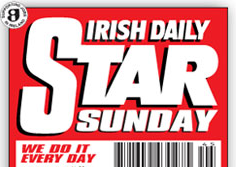Solicitors await a “deluge of legislation” from the next Minister for Justice
Published 28 February 2011Tags: irish law, law society, oireachtas, professional indemnity insurance, solicitors
Fine Gael will probably have the choice of Minister for Justice & Equality and the position is expected by many to go to Alan Shatter, veteran solicitor, politician and publisher of colourful pamphlets.
Shatter was recently interviewed by Stuart Gilhooly for The Parchment and made the following comment, which is either exciting or terrifying depending on your outlook:
He wants a legacy. He wants to change the way the country works. He wants to make a difference. And you get the feeling that if he gets his chance, three decades of frustration will be released by a deluge of legislation.
Author: Eoin
Parenthetically speaking: paragraph numbers in Irish judgments
 Paul McMahon on Ex Tempore has an excellent post this morning musing on the use of paragraph numbers in judgments in the Supreme Court. He thinks they’re rather unattractive, but useful. I think his aesthetic objections are misplaced, but I agree with him that they are useful, and I think that the sooner Irish judgments come into line with this best practice elsewhere, the better.
Paul McMahon on Ex Tempore has an excellent post this morning musing on the use of paragraph numbers in judgments in the Supreme Court. He thinks they’re rather unattractive, but useful. I think his aesthetic objections are misplaced, but I agree with him that they are useful, and I think that the sooner Irish judgments come into line with this best practice elsewhere, the better.
I’m not sure that the absence of paragraph numbers in US judicial opinions is for reasons of sytle. There is much that is ugly about formal US opinion writing, some (much?) of it driven by the Bluebook, some simply a matter of history. The absence of paragraph numbers reflects the assumption that the judgment will be reported very quickly by West in an appropriate volume of their national reporter system, so that the page number will provide the appropriate pin cite.
However, the rise of the paragraph number in judgments outside the US is a function of the rise of medium-neutral reporting and citation. The Austlii/ Bailii/ Canlii (etc) style of citation – [year] court (case no) [para] – makes it easy to pinpoint the relevant citation whatever the medium of publication: html, pdf, or traditional dead-tree law report.…
Brian Cowen’s very big, VERY BAD, idea for the third level sector
Fewer universities with one big brand leader known as the University of Ireland is in the wider national interest
The Irish Times – Fri, Feb 25, 2011
SEÁN FLYNN
EDUCATION: IN THE COURSE of discussions on the University College Dublin-Trinity research alliance two years ago, the Taoiseach Brian Cowen and his advisers had a Very Big Idea. The secret discussions with the two universities had focused on how to build a world-class research capacity in our leading higher education colleges. But some of the Cowen team wanted to go further.
The logical step, they argued, was for a full merger of UCD and Trinity, pooling the best of both in a reshaped institution that would glide onto any list of the best universities in the world.
This is a terrible idea. It presupposes that it is worthwhile chasing international rankings. This quest is ephemeral at best. But even if it is worthwhile, Cowen’s strategy assumes that scrapping a very strong brand (TCD) and an emerging brand (UCD) and replacing them with an entirely new one is the way to do it. And that cannot be right.…
Irish Govt pushing through ‘illegal downloads’ changes to copyright law – Siliconrepublic.com
In its final days, the Government is believed to be rushing through a statutory instrument that will amend the existing Copyright Act and which will give judges the power to grant injunctions against ISPs in relation to copyright infringement cases.
The move is believed to stem from October’s court case between the music industry (Warner, Sony, Universal and EMI) and UPC in which the judge pointed to a key gap in Irish copyright laws.
Siliconrepublic.com has learned that the Department of Enterprise Trade and Innovation and the Department of Communications have tabled the legislation which is currently in the hands of the parliamentary draftsman with a view to passing it by Friday.
Group defamation in the Supreme Court of Canada
Section 10 of the Defamation Act, 2009 provides
Where a person publishes a defamatory statement concerning a class of persons, a member of that class shall have a cause of action under this Act against that person if –
(a) by reason of the number of persons who are members of that class, or
(b) by virtue of the circumstances in which the statement is published,
the statement could reasonably be understood to refer, in particular, to the member concerned.
A recent decision of the Supreme Court of Canada, noted here by Inforrm, can help fill in some of the gaps in that section. Some extracts:
Bou Malhab v. Diffusion Métromédia CMR inc., 2011 SCC 9 (CanLII) (17 March 2011)
Deschamps J. —
[1] The law of defamation is a tool for protecting personal reputations. This right keeps pace with changes in society and in the importance attached by society to freedom of expression. In Quebec, actions in defamation are governed by the general principles of civil liability. The flexibility of those principles makes it possible to address society’s growing concerns about freedom of expression. … The Court must examine the factors to consider when determining whether racist comments made about a group can cause a compensable injury.
Case Law: Abdul v DPP, “British Soldiers go to Hell” and free speech – Isabel McArdle « Inforrm’s Blog
23
02
2011
In Munim Abdul and Others v Director of Public Prosecutions [2011] EWHC 247 (Admin) the High Court ruled that prosecution of a group of people who had shouted slogans, including, “burn in hell”, “baby killers” and “rapists” at a parade of British soldiers, was not a breach of their right to freedom of expression, protected by Article 10 of the European Convention on Human Rights.
The men’s appeal was dismissed. Not all speech is protected by freedom of expression rights, and not all protest is legitimate in the eyes of the state.
This post originally appeared on the UK Human Rights Blog and is reproduced with permission and thanks.
Prior restraint and permanent injunctions in defamation cases – updated
 In Watters v Independent Star [2010] IECC 1 (03 November 2010), the first reported judgment on the Defamation Act, 2009 (also here), Matthews J granted the plaintiff a declaratory order pursuant to section 28 of the Act (also here) that an article published by the defendant was defamatory, and he made a further order pursuant to section 33 of the Act (also here) prohibiting the newspaper from re-publishing the defamation.
In Watters v Independent Star [2010] IECC 1 (03 November 2010), the first reported judgment on the Defamation Act, 2009 (also here), Matthews J granted the plaintiff a declaratory order pursuant to section 28 of the Act (also here) that an article published by the defendant was defamatory, and he made a further order pursuant to section 33 of the Act (also here) prohibiting the newspaper from re-publishing the defamation.
In an earlier post (also here), I have already looked at some issues arising from this decision. Another critical aspect of Matthew J’s judgment was that, although the plaintiff was a convicted criminal, he nevertheless possessed a residual reputation which was damaged by the newspaper’s allegations. Of course, evidence of a plaintiff’s general bad reputation is admissible in evidence in mitigation of damages (see section 31(4)(g) and section 31(6)(a) of the Act (also here); see also Hill v Cork Examiner Publications [2001] 4 IR 219, [2001] IESC 95 (14 November 2001) and the recent decision of Tugendhat J in Hunt v Evening Standard [2011] EWHC 272 (QB) (18 February 2011)). However, this is a long way from saying that such a general bad reputation renders a plaintiff libel-proof.…
The Broadcasting Authority of Ireland has published its first Strategy Statement
BAI STRATEGY 2011-2013 PUBLISHED
The Broadcasting Authority of Ireland (“BAI”) has … published its first Strategy Statement which sets out the organisation’s mission and values as well as its vision for the broadcasting sector for the period 2011-2013.
The Statement captures the focus of the work of the BAI in seven over-arching strategic themes. Eight strategic (high level) goals have been developed, covering the three year period of this strategy. Each goal contains specific objectives enabling the BAI to execute its mission and to contribute to the achievement of its vision. On a yearly basis, the BAI will identify specific deliverables under each strategic goal, which will shape its annual work-plan. …
The Authority has also published a Statement of Outcomes document which provides a general overview of the changes made to the draft Strategy Statement on foot of submissions received during the public consultation phase. The BAI’s workplan associated with the Strategy Statement is also scheduled for publication in the coming days. …
To download a copy of the Strategy Statement in English please click HERE
To download a copy of the Strategy Statement in Irish please click HERE
To download of copy of the Statement of Outcomes document please click HERE

